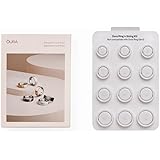Delta-8 THC is a double-bond isomer of tetrahydrocannabinol. Compared to delta-9-THC, relatively little is known about delta-8, and it has not been evaluated by the United States Food and Drug Administration (FDA).
Despite the lack of research surrounding the safety of delta-8, the drug is fairly popular. That’s because of a legal loophole in the 2018 U.S. Farm Bill, also known as the Agriculture Improvement Act. The farm bill legalized hemp, a nonpsychoactive form of the cannabis plant used to produce cannabidiol (CBD), cloth and paper.
The Farm Bill defined hemp as containing less than 0.3 percent delta-9-THC, but there was no mention of how much delta-8-THC (or other cannabinoids) hemp could contain. Because of this, people have been able to extract psychoactive amounts of delta-8 THC from nonpsychoactive hemp-derived products.
Is Delta-8 Safe?
The safety of delta-8-THC is unknown used. According to the FDA, from the time delta-8 was added to the National Poison Control Center’s database in January 2021 to February 2022, there were 2,362 cases of delta-8 exposure, 70 percent of which required medical attention.
Because delta-8 is unregulated, consumers typically don’t know how much THC these products actually contain — or if they contain other, potentially harmful chemicals. Delta-8 can cause adverse events for children and pets. (Approximately 41 percent of poison control cases for delta-8 involved minors.)
Despite the lack of regulation and empirical evidence surrounding delta-8, the drug is very popular, especially among teens. A 2023 survey found that 11.4 percent of U.S. 12th-grade students had used delta-8.
Note: This article have been indexed to our site. We do not claim legitimacy, ownership or copyright of any of the content above. To see the article at original source Click Here












